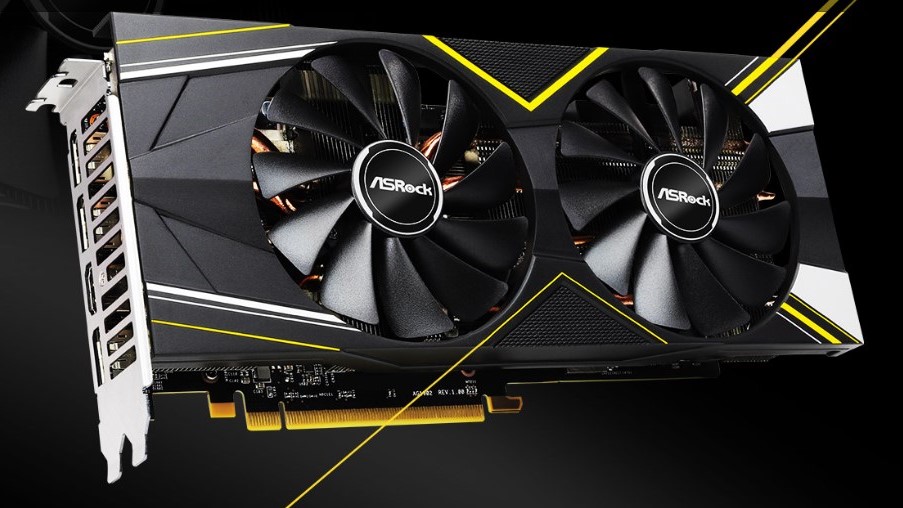Overclocked AMD Navi graphics cards with dual-fan designs are almost here
ASRock and MSI bring more fans to handle the heat

Aftermarket components maker ASRock has pointed out new AMD Navi-based graphics cards with dual-fan designs and out-of-the-box overclocking, HotHardware reports. And, MSI has teased its own design, also according to HotHardware.
AMD's Radeon RX 5700 and 5700 XT graphics cards are an affordable pair of high-power hardware, but were limited to blower-style designs and factory clock speeds at launch (except the Anniversary Edition). Clearly, that's changing soon.
We learned previously that AMD's add-in-board partners would release new designs in August, and the hope was that some of those new graphics cards would include different cooling solutions.
The blower-style design seen on AMD's reference cards may offer consistent cooling in different setups, but that doesn't mean it's powerful cooling. We saw temperatures for the Radeon RX 5700 XT hit 81 degrees Celsius in our testing of the card. Overclocking would likely see the temperatures go even higher.
- Check out the best graphics cards
- See how the RX 5700 and RX 5700 XT compare to each other
- Learn about AMD Navi
Enter partners
AMD's add-in-board partners can change things up. ASRock, for instance, will swap out the blower for dual fans in its Challenger series. In the case of the RX 5700 XT Challenger OC, this will let ASRock bump up some of the speeds a little. It will offer a base clock of 1,650MHz, game clock of 1,795MHz, and boost clock of 1,905MHz. That compares to the reference cards 1,605/1,755/1,905MHz.
MSI's Mech OC version of the new Navi cards don't have much in the way of details yet, but they'll similarly have dual fans and overclocking. Both cards should should arrive in the latter half of August.
This is good news for AMD fans that want to get the new RX 5700 or RX 5700 XT but don't want to get stuck with the current versions. While we don't see the peak clock speed increased, higher base clocks should offer across-the-board improvements.
Sign up for breaking news, reviews, opinion, top tech deals, and more.
And, the switch in designs may eventually let some board partners offer cards that are even cheaper than the reference models from AMD. That would be a further drop in addition to the one AMD already pulled on Nvidia after the announcement of the RTX Super graphics cards.
Be on the lookout for more new designs from the likes of Asus, Gigabyte, EVGA, and plenty more soon.
- See our review of the Nvidia GeForce RTX 2070 Super

Over the last several years, Mark has been tasked as a writer, an editor, and a manager, interacting with published content from all angles. He is intimately familiar with the editorial process from the inception of an article idea, through the iterative process, past publishing, and down the road into performance analysis.